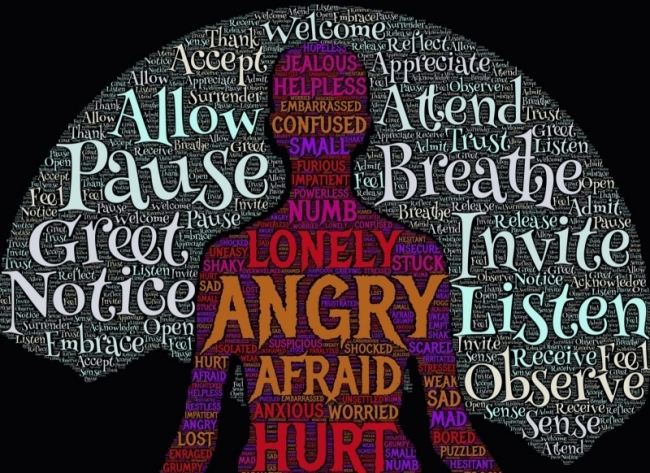Self Destruction in Anger and Hatred

Chapter 13 of our Summer Book read, “The Art of Happiness” by HH the Dalai Lama, covers the obstacles of anger and hatred in our path toward happiness. In fact, it is stated in this chapter that these emotions and reactions are “the greatest evils because…they destroy one’s virtue and calmness of mind.”
Anger in and of itself can sometimes inspire action or change, but any resulting hatred will never be positive. “Hatred has no other function, no other purpose, than destroying us.” So, to bypass hatred we must have enthusiasm and desire to cultivate patience and tolerance before the intensity and force of anger “obliterates the best part of your brain, which is the ability to judge between right and wrong, and the long-term and short-term consequences of your actions.”
But how do we develop this patience and tolerance that bypasses anger and hatred? Learning and practice of course! First we have to learn when and why feelings of anger and hatred appear. According to The Dalai Lama, these feelings arise because our own minds are already “troubled by dissatisfaction and discontent.” We can see so much of this occurring right now in the middle of this pandemic and political climate. Individual discontent turns into rage and paranoia that is blinding to compassion and empathy for others. We have to be able to observe our own reactions, take a time out sometimes, and find ways to break the cycle of overreaction.
That is where practice comes in. This chapter highlights that analyzing and reasoning can be helpful, seeing all sides of any situation as has been stated in this book previously. But, practices of meditation, awareness, and connection – like yoga – can begin to slow down those reactionary behaviors of mind and body. He mentions of course that this practice is necessary before the blinding heat of intense anger occur. We have to be proactive in this study and practice to be successful.
And don’t think that this means we become wet rags or passive weaklings. Dispelling your own anger and hatred is a practice of strength and humility, of good and sound judgement. “Patience and tolerance comes from an ability to remain firm and steadfast and not be overwhelmed by the adverse situations or conditions that one faces…Responding to a trying situation with patience and tolerance…comes from a strong, self-disciplined mind.”
This practice of patience and tolerance results in a natural ability to forgive. Forgiveness is freeing to our mind and brings peace to our consciousness. To allow the past to be in the past and move forward is the most powerful step to take toward our own happiness.
This chapter ends with some specific meditations on facing, understanding, and overcoming your own anger…